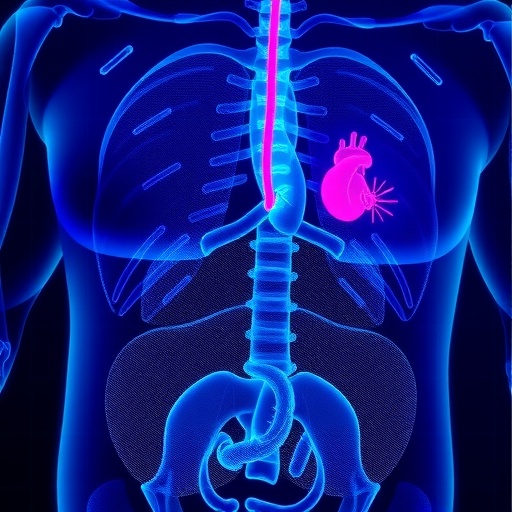A groundbreaking new analysis of the SELECT trial—currently the most extensive and long-duration clinical investigation into the cardiovascular effects of semaglutide—has revealed compelling evidence that this medication not only aids in weight loss and diabetes management but also provides significant protection against major cardiovascular events. This protection appears particularly relevant for individuals living with overweight or obesity who already suffer from cardiovascular disease, extending benefits even to those without diabetes. The study, recently published in The Lancet, redefines our understanding of semaglutide’s therapeutic potential, indicating its heart-protective effects operate independently of a person’s baseline body weight or the amount of weight lost.
The SELECT trial initially enrolled more than 17,000 adults with established heart disease and a body mass index (BMI) above 27, randomly assigning participants to receive either semaglutide or a placebo. This pioneering study was designed to evaluate the drug’s efficacy in reducing cardiovascular risk beyond its metabolic and weight-loss capabilities. Using meticulous data collection and patient monitoring over an extended follow-up period, the trial generated a robust dataset enabling researchers to explore nuanced relationships between changes in body composition and cardiovascular outcomes.
This latest prespecified analysis focused on dissecting specific adiposity measures—primarily weight and waist circumference—and their connection to events like heart attacks and strokes. Although participants treated with semaglutide experienced considerable reductions in both overall weight and waist size, the investigators found an unexpected dissociation: the magnitude of early weight loss did not reliably predict the reduction in cardiovascular complications. Instead, a reduction in waist circumference emerged as a significant predictor of improved cardiovascular outcomes, responsible for approximately one-third of the drug’s protective effect. This highlights the critical role of visceral adiposity reduction—particularly decreased abdominal fat—as a driver of cardiovascular health.
Semaglutide is a glucagon-like peptide-1 (GLP-1) receptor agonist, originally developed to manage type 2 diabetes by enhancing insulin secretion, suppressing glucagon release, and delaying gastric emptying. Over time, its use expanded to obesity management due to its potent appetite-suppressing and weight-reducing effects. The current findings add a new dimension to the drug’s profile, suggesting benefits stemming from mechanisms beyond simple weight loss. Such mechanisms might include direct effects on vascular inflammation, endothelial function, and metabolic signaling pathways intimately linked with cardiovascular disease progression.
A crucial implication of these findings is that semaglutide’s cardioprotective properties could be accessible to a broader patient population than previously envisioned. People with excess weight or obesity and concomitant cardiovascular disease stand to benefit from semaglutide intervention regardless of whether they have diabetes or the extent to which they lose weight. This stratifies semaglutide as a potential cornerstone agent in cardiometabolic risk reduction strategies, moving beyond traditional glucose-centric paradigms.
The researchers emphasize that waist circumference, which reflects central or visceral fat accumulation, likely serves as a more relevant biomarker than total body weight for cardiovascular risk. Visceral fat is metabolically active and contributes to systemic inflammation, insulin resistance, and atherogenesis—the processes that underpin cardiovascular pathology. Thus, shrinking the waistline could attenuate these adverse metabolic effects directly linked to heart disease morbidity and mortality.
Importantly, the study’s observational design within the rigorously controlled SELECT trial framework allows for high confidence in the validity of these conclusions while acknowledging inherent limitations typical of such analytical approaches. Further mechanistic studies are warranted to elucidate the precise molecular pathways by which semaglutide confers cardiovascular resilience independently of weight changes.
From a clinical perspective, these findings inform patient management by underscoring the necessity to monitor central adiposity changes alongside traditional weight metrics. They also inspire new clinical trial designs to explore whether targeting visceral fat reduction specifically might maximize cardiovascular benefit from semaglutide or related compounds. The study potentially paves the way for the development of novel therapeutic agents that decouple metabolic improvement from weight loss while maintaining or even enhancing cardiovascular protection.
The pharmaceutical industry and medical communities closely watch these insights, as the results may influence guidelines and reimbursement policies, broadening access to semaglutide for patients with established cardiovascular risk factors but without diabetes. This aligns with emerging trends favoring precision medicine and individualized treatment plans that address multifaceted aspects of cardiometabolic health.
In summary, this meticulous reanalysis of the landmark SELECT trial reaffirms semaglutide’s efficacy in reducing cardiovascular events in high-risk populations. It challenges prevailing notions that weight loss alone mediates these benefits, inaugurating a new era focused on central adiposity and underlying cardiovascular biology. The drug’s multifunctional properties make it a truly innovative agent capable of reshaping clinical practice concerning obesity, diabetes, and cardiovascular disease.
As the medical community digests these transformative findings, patients suffering from obesity and cardiovascular disease may soon access more effective tools to mitigate their risk, extending beyond conventional therapeutic modalities. This enhanced understanding encourages clinicians and researchers alike to rethink how clinical outcomes are measured and targeted, fostering novel interventions tailored to individual pathophysiology rather than singular clinical endpoints.
The SELECT trial’s revelations thus herald a pivotal moment in cardiovascular pharmacotherapy, illustrating the evolving complexity inherent in treating cardiometabolic disorders. Semaglutide’s dual utility in weight and cardiovascular management underscores the interconnectedness of metabolic and cardiovascular pathways and the importance of comprehensive treatment approaches that transcend diagnostic labels like diabetes alone.
Subject of Research: People
Article Title: Semaglutide and cardiovascular outcomes by baseline and changes in adiposity measurements: a prespecified analysis of the SELECT trial
News Publication Date: 22-Oct-2025
Web References: http://dx.doi.org/10.1016/S0140-6736(25)01375-3
Keywords: Health and medicine




